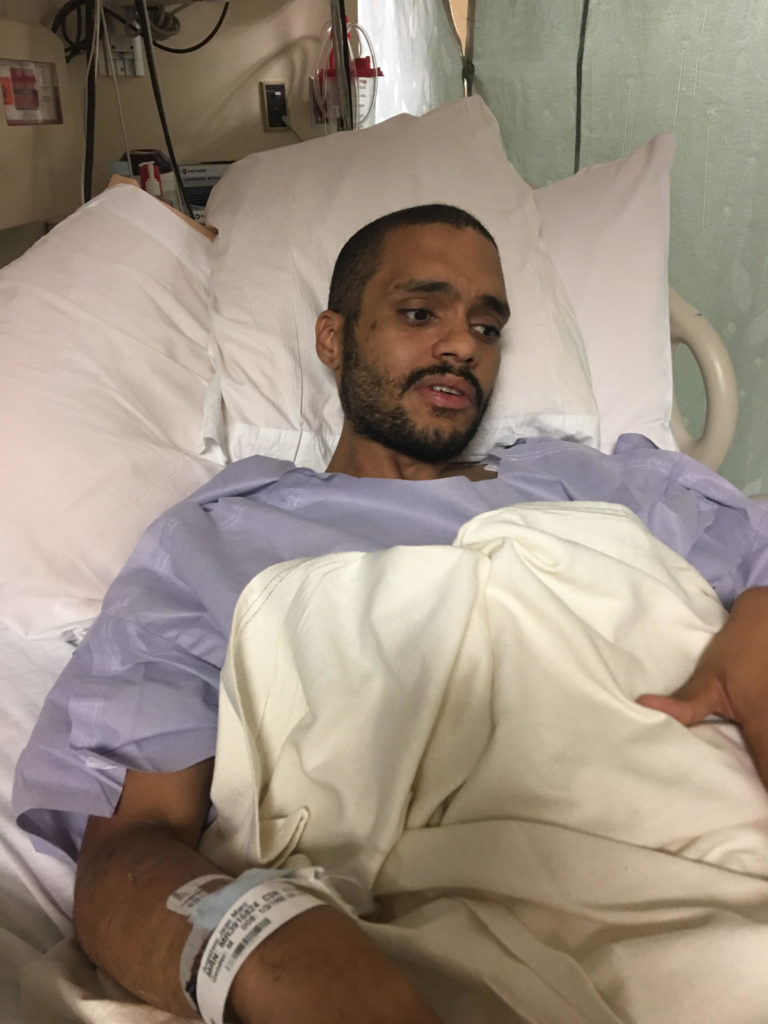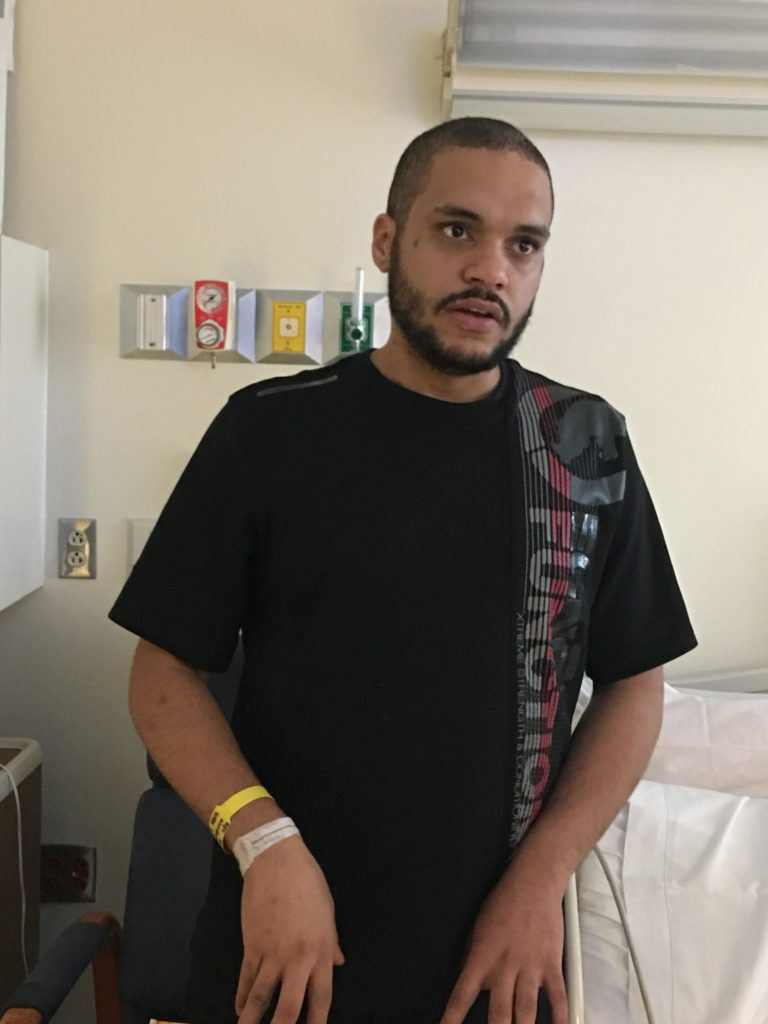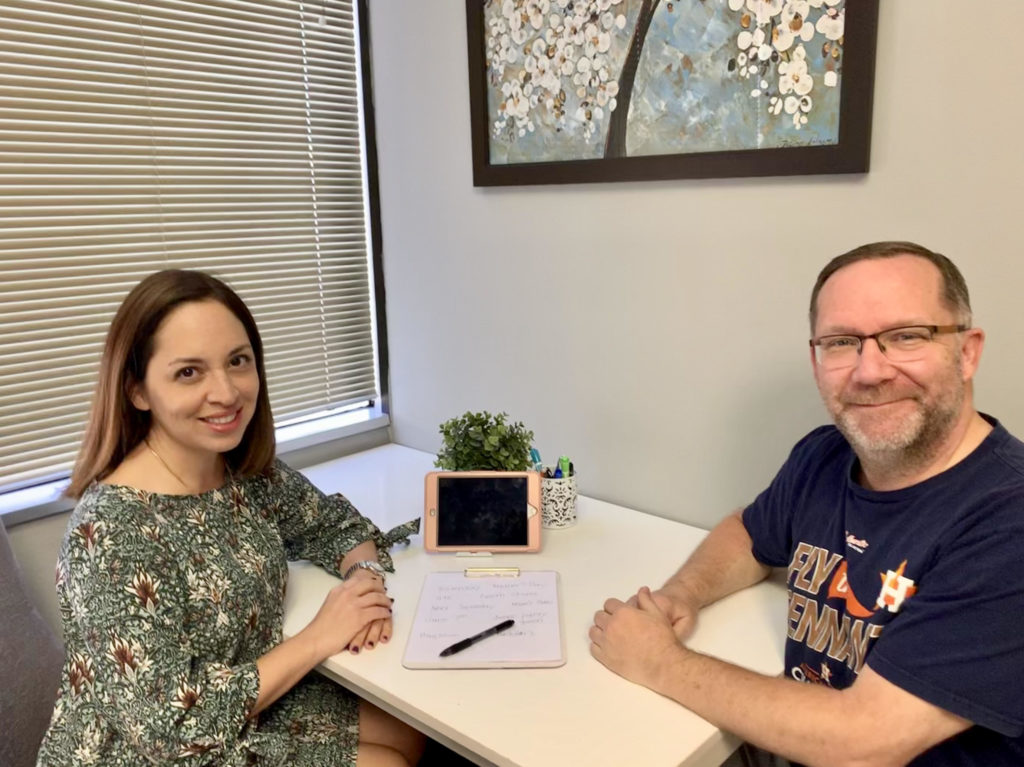Welcome to the Aphasia Threads Project, which weaves together three points-of-view: people with aphasia, caregivers, and the professionals who help each family navigate aphasia. Each week, we bring together three unrelated stories, one from each member of this triad, to learn from their experience. This week, we’ll hear from Chris, a person with aphasia, who had a stroke five years ago. Then, we’ll hear from Mary, who is a caregiver for her son who has aphasia. Finally, we’ll hear from Sofia, a bilingual speech therapist in Texas.

Person with Aphasia
I had a stroke five years ago.
Aphasia Changes Your Life
I go to the gym. I cook for my wife and 16-year-old daughter.
But There Are Things That Help
The computer. Also Lumosity, BrainHQ, and Constant Therapy.
And Things You Learn Along the Way
Pray and keep trying to talking. Don’t give up!
What Caregivers and Professionals Can Learn From Me
It takes longer to express my thoughts than before the stroke. Sometimes I say yes but really mean no. I’m just alone and discouraged.

Caregiver
My son suffered two strokes, one massive to left side and smaller one on right side of his brain.

Aphasia Changes Your Life
My son has actually become a little angel and is now very conscious of how this has impacted his life. He has slowly gained awareness of his past.
But There Are Things That Help
Speech therapy at Gaylord and that he’s 27 years old.
And Things You Learn Along the Way
They no longer feel as smart as they were previously and this impacts them at every turn, as if they no longer have worth or value in society. You must keep reassuring them that they are alive and will overcome and regain speech and memory slowly.
What People with Aphasia and Professionals Can Learn From Me
It’s not easy when they are young. They think they will never meet someone to love, and they are scared of what the future will look like for them and if they will be able to work.
It sucks to be 27 with aphasia!


Professional
Sofia is a bilingual speech therapist at Words of Wisdom in Texas.
I first started working with people with aphasia at TIRR Memorial Hermann in Houston, TX as a clinical fellow. My first patient was a bilingual person with aphasia. I later worked for a few months at Houston Aphasia Recovery Center (HARC) and then eventually opened my own private practice, Words of Wisdom about 6 years ago. I continue to see people with many different types of aphasia including primary progressive aphasia (PPA).

What I’ve Noticed Along the Way
The challenge I face as a bilingual SLP is the lack of available resources in Spanish. However, in the past few years, there have been more materials and resources available in Spanish. The best thing about treating people with aphasia in a private practice setting is that you can work on so many functional things such as wedding speeches, anniversary speeches, interviews, using the phone, and being able to work directly with family and friends. Our clients are always so motivated and that makes it easy on us!
There Are Things That Help
When we need to trial a Speech Generating Device (SGD), we prefer starting with the Lingraphica Small Talk. They also have a Spanish version of the Lingraphica Small Talk. At Words of Wisdom, we try to use everything that is out there all while making it functional and meaningful to our client and their families. We may start by modifying their smart phones or providing them with a simple communication/pocket book to facilitate their ability to communicate basic wants and needs.
And I Encourage New Professionals to Learn About Aphasia
People with aphasia are some of the most motivating clients you will ever work with. Identifying and highlighting their strengths is always a great place to start. For example, a client I am working with has difficulty with word retrieval, but has very functional writing. We started by using writing to facilitate his speech production. He is now more confident in communicating knowing that he has communication tools.
What People with Aphasia and Caregivers Can Learn From Me
An SLP is your communication coach. Our job is to support your ability to communicate in various settings. We love to get input about what you think works and what doesn’t. It’s also important to work on your speech goals outside of the clinical setting. Share your communication goals with your SLP from day one.

Want to Be Featured in a Future Article?
Aphasia Threads is an on-going project created by the National Aphasia Association. If you’d like to be featured, don’t leave a comment. Instead, please read the opening post for more information or fill out our form and we’ll contact you.



